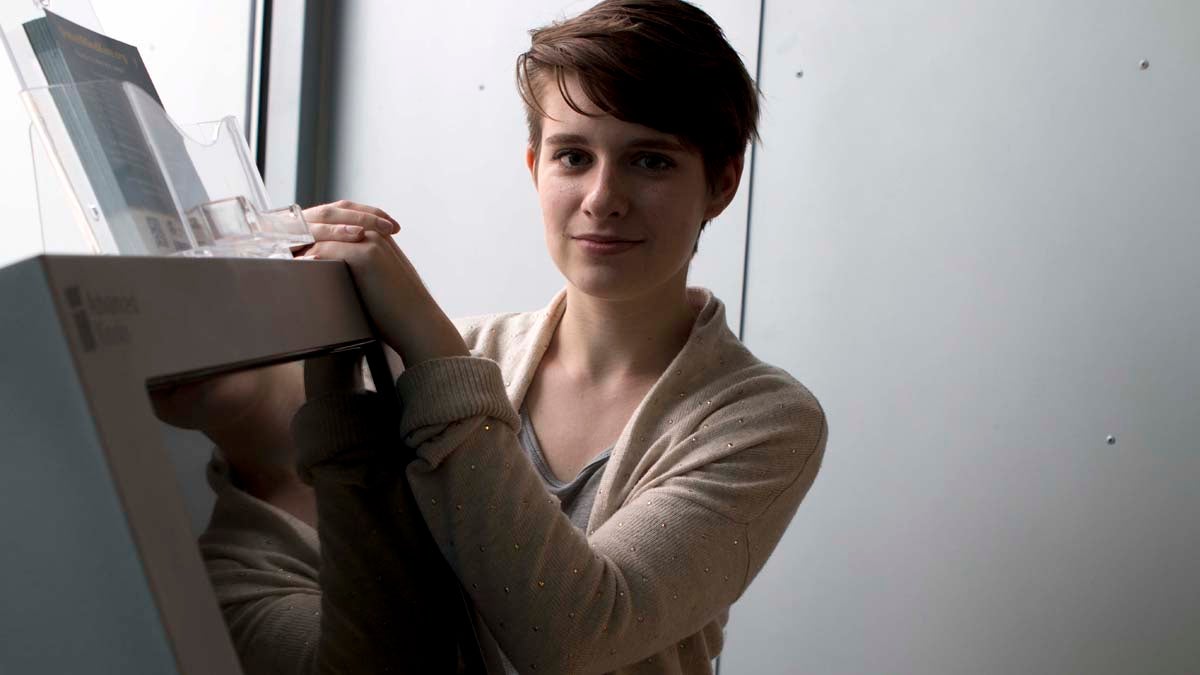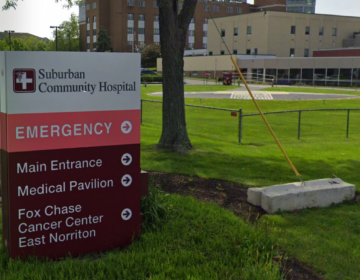Drexel offers quick mental health screenings via small kiosk

Anna Gibbons, a public health major at Drexel University,stands by the mental health screening kiosk. (Karen Shakerdge/ NewsWorks)
Could a small kiosk — reminiscent of the machine you use to check in at the airport — reach students at risk for mental health issues?
Drexel University is the first school in the country to try that approach. The university has installed a touch-screen machine in its rec center that assesses students through anonymous questionnaires, posing a series of yes-or-no questions.
“So you start the screening, and it asks you how you’ve been feeling lately,” explained sophomore Anna Gibbons who has already given the kiosk a try. “It gives you options, like ‘I feel like I’ve been experiencing mood swings, I’m afraid of gaining weight, I’ve been feeling hopeless.'”
Gibbons, who has previously dealt with mental health issues, said college students are especially at risk of not seeking help.
“You’re trying to get used to living in a new place, having all this freedom, all this responsibility, and if you’re also dealing with mental illness you know, you don’t have your parents there to guide you to go see a doctor, a therapist,” she said. “You have to figure these things out on your own.”
Gibbons is part of Active Minds, an organization that promotes mental health activities for students and works to reduce stigma.
The machine is only there to detect symptoms, and to offer a different way to reach out for help.
“Is what’s going on for that person something that warrants taking further steps? Or is it part and parcel of daily living? It makes clear what steps are available if folks are ready to take those steps,” explained Paul Furtaw, who oversees counseling services and suicide prevention at Drexel University.
The hope is that the informal setting will be less intimidating than a visit to the counseling office, he said, and encourage students to seek further help when needed.
WHYY is your source for fact-based, in-depth journalism and information. As a nonprofit organization, we rely on financial support from readers like you. Please give today.




